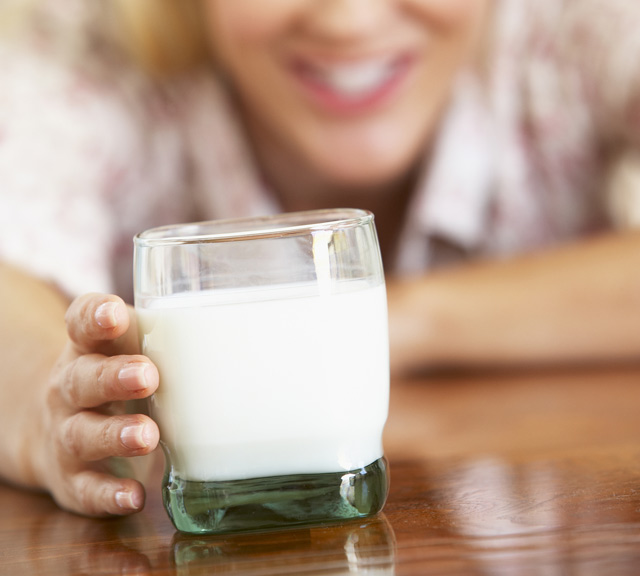Eat Your Way to Better Health During Menopause

Find Your Perfect Match
Answer a few questions and we'll provide you with a list of primary care providers that best fit your needs.
One bite at a time, you can help your body thrive during menopause. Now is the time to pay attention to some special nutrients your body needs during this change.
Menopause occurs in a woman’s life when your menstrual periods end because your ovaries stop producing the hormones estrogen and progesterone.
Follow these guidelines to preserve your quality of life during menopause and beyond.
Protect Your Bones
The lack of estrogen that occurs during menopause can lead to bone loss and osteoporosis. It’s important to protect your bones by eating foods or supplements with the right nutrients:
- Calcium. Once you reach menopause, doctors recommend that your diet include 1,200 milligrams (mg) of calcium per day. Dairy products are the best source of calcium. For example, one cup of milk has 300 mg of calcium. If you are not able to take in 1,200 mg in your diet, ask your doctor about a dietary supplement.
- Vitamin D. This important vitamin promotes bone formation and absorption of calcium. Having sufficient vitamin D in your system can reduce your risk of bone fractures. Sources of vitamin D include sunlight exposure, fatty fish like salmon, trout and tuna, egg yolk, plus foods fortified with vitamin D, including milk, orange juice and cereal. Don’t overdo, because too much vitamin D can cause kidney stones, constipation or abdominal pain. If you are age 51 to 70, try to get 600 international units (IU) of vitamin D each day. Women ages 71 and older need 800 IU of vitamin D each day.
Eat a Well-Balanced Diet
If you’ve reached menopause or beyond, follow these other guidelines for healthy eating:
- Because your body needs fewer calories as you age, eat a little less, choose foods rich in nutrients and avoid empty calories.
- Take 2.4 micrograms (mcg) of vitamin B12 and 1.5 mg of vitamin B6 each day. Animal products, including fish, meat, poultry, eggs, milk and milk products contain vitamin B12. Many breakfast cereals also are fortified with the vitamin. Foods with B6 include fish, meats, chickpeas, bananas, potatoes and fortified cereals. Talk to your doctor about whether you need a vitamin supplement.
- If you have vaginal bleeding due to hormone therapy, ask your doctor if you need to take an iron supplement.
- Eat a variety of vegetables and fruits of different colors.
- Make half of the grains you eat whole grains.
- Eat seafood twice a week.
- Limit foods with solid fats, saturated fat, trans fat and added sugars, such as cakes, cookies and other desserts.
Find Your Perfect Match
Answer a few questions and we'll provide you with a list of primary care providers that best fit your needs.
Source: Office on Women’s Health, U.S. Department of Health and Human Services; National Institutes of Health: National Institute on Aging; Office of Dietary Supplements; Menopause: Journal of The North American Menopause Society; Staying Healthy After Me




